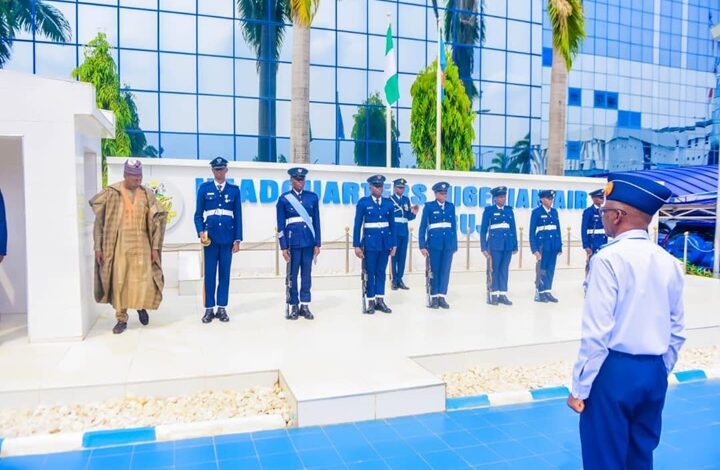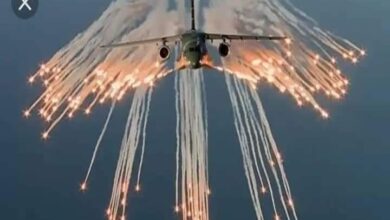Zulum engages Military Chiefs in Abuja

Abuja, Nigeria – Borno State Governor Babagana Umara Zulum took decisive action Thursday, meeting Nigeria’s top military leaders in Abuja to strengthen counterinsurgency efforts.
Facing escalating Boko Haram violence, he held closed-door talks with Army Chief Lt. Gen. Olufemi Oluyede, Naval Chief Vice Admiral Emmanuel Ogalla, and Air Chief Marshal Hasan Abubakar.
Central to these discussions was crafting a unified strategy to stabilize the Northeast, where insurgents routinely target civilians and security forces.

Governor Zulum emphasized improving real-time intelligence sharing and reinforcing coordination among military branches. Additionally, plans addressed recent surges in attacks, including raids on villages and military outposts.
This urgent meeting followed Zulum’s expanded security council gathering in Maiduguri earlier this week, where he warned of worsening instability. “We cannot afford delays,” he asserted, demanding immediate measures to protect vulnerable communities. His proactive stance reflects mounting pressure to curb the decade-long crisis.
Accompanying Zulum were key Borno representatives, including Senators Mohammed Ndume, Mohammed Monguno, and Kaka Lawan. Additionally, House members Mukhtar Aliyu and Bukar Talba attended. Professor Usman Tar, Borno’s Information Commissioner, also joined, which underscored the state’s commitment to collaborative security solutions.
The meetings critically focused on deploying advanced surveillance technology to enhance security. Furthermore, increasing troop mobility in remote areas emerged as a priority. The Air Force pledged enhanced aerial support, while the Navy vowed to secure Lake Chad routes often used by insurgents. Meanwhile, the Army outlined plans for rapid-response units aimed at intercepting attacks.
Governor Zulum stressed the human cost of prolonged conflict, urging military leaders to prioritize civilian safety. “Communities deserve relief from fear,” he stated, pushing for humanitarian corridors to aid displaced families. His appeal highlighted the intersection of security and social recovery.
Security analysts praised the collaboration, noting that sustained dialogue between state and federal actors is vital. However, challenges remain, including funding gaps and insurgents’ adaptability. Success hinges on translating strategies into swift, localized actions.
The outcomes are expected to reshape operations in coming months, potentially accelerating the recapture of Boko Haram strongholds. For displaced residents, renewed military coordination offers hope for returning home. Yet, lasting peace requires addressing root causes like poverty and unemployment.
As the meetings concluded, Zulum expressed cautious optimism, reaffirming his administration’s support for troops. “This partnership marks a critical step forward,” he said. With violence displacing over 2 million Nigerians, the stakes have never been higher.
The Northeast’s future now depends on executing these plans effectively. For Zulum, balancing military action with community trust-building remains paramount. As night fell in Abuja, the resolve to reclaim peace burned brighter than ever.
Post Views: 38





